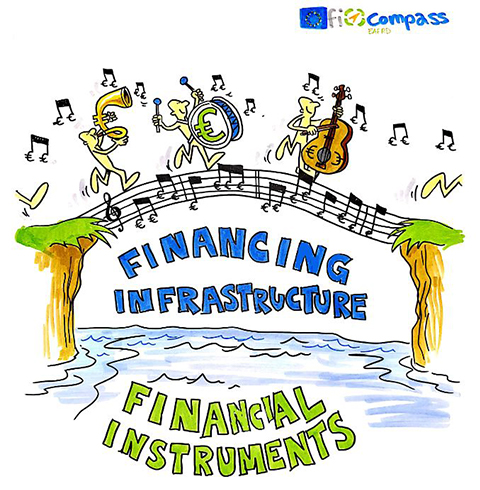A new DG AGRI-EIB initiative in support of rural infrastructure investment and smart villages development

A new initiative of the European Commission’s Directorate-General for Agriculture and Rural Development (DG AGRI) and the European Investment Bank (EIB) encouraging the use of EAFRD financial instruments by EU Member States for rural infrastructure development and smart villages was launched during the ‘Fifth annual EU conference on European Agricultural Fund for Rural Development (EAFRD) in 2014-2020’, which took place in Romania on 4-5 June 2019.
Organised by DG AGRI in partnership with the EIB, the conference attracted more than 200 delegates including EAFRD managing and public authorities from across the EU, financial intermediaries and other stakeholders, farmers’ unions using or interested in learning more about EAFRD financial instruments.
Pilot technical assistance initiative for EAFRD managing authorities
Phil Hogan, European Commissioner for Agriculture and Rural Development highlighted in his opening speech that "the development of rural infrastructure is a real need across the EU and financial instruments can help boost investments in rural areas". As a further step in this direction, the Commissioner announced a new joint initiative of DG AGRI, European Commission, and the EIB Group to support rural infrastructure investment and smart villages. The initiative is to be provided under fi-compass. In its nature, it is a "pilot technical assistance initiative to help managing authorities to prepare the ground for enhancing and using opportunities of financial instruments in rural areas to make them more attractive places to work and live".
EAFRD financial instruments are one of the tools to achieve the new CAP rural development objectives on smart villages focusing on key local infrastructures whether social, economic or environmental. Commissioner Hogan invited interested managing authorities to come forward and look at this option.
Commissioner Hogan reported that in comparison to 2015, when there were no EAFRD financial instruments, now there are 29 up and running or in preparation supported with almost EUR 1 billion of total public support (EAFRD, national or regional).
This shows that financial instruments for agriculture are becoming more and more important in recent years. Although there are successful examples under different ESI Funds or centrally managed EU policies such as the Cohesion Policy, the European Fund for Strategic Investments (EFSI), InvestEU and the Connecting Europe Facility (CEF) of financial instruments supporting infrastructure, so far there are no financial instrument for infrastructure investments under EAFRD programmes.
Therefore, the objective of this initiative is to encourage EAFRD managing authorities to assess their needs for financing rural infrastructure and to pay special attention to the possible role of EAFRD financial instruments to supplement EAFRD grants or to be used in combination with EIB financing for rural infrastructure.
What is offered through this initiative
The aim of this assistance is to familiarise EAFRD managing authorities with the opportunities financial instruments could offer to support infrastructure projects. For example, the use EAFRD resources financial instruments can in particular:
- Enable project pooling/aggregation, providing private investors with the necessary critical mass and risk diversification to attract at least part of their funding;
- Increase awareness and build capacity in both public authorities and private project promoters;
- Reduce risk and/or improve project ‘bankability’ (e.g. with guarantees or in combination with grants or interest rate subsidies), providing the necessary incentives to attract private investment in rural infrastructure.
Depending on the needs of the interested managing authorities the support to be provided and the outcomes could vary: e.g. preparation of roadmaps, concrete planning, advice on how to organise the ex-ante assessment process or recommendations on the structure of a future and/or existing financial instruments.
Encouraging the exchange of experience to overcome the innovation gap
Commissioner Hogan went along encouraging the EAFRD managing authorities to learn from each others' experiences with financial instruments and highlighted that this helps overcome the knowledge gap related to these type of instruments.
Experiences from financing infrastructure investments in rural areas were presented by Italy and Greece. The managing authority of the Sardinia Region in Italy provided examples of financing projects of small municipalities, while a representative from the Greek Public Private Partnership (PPP) Unit presented their experience with using PPP for broadband investment in rural areas.
The conference also provided an overview of the various uses managing authorities could make of financial instruments and highlighted challenges in rural areas and agriculture. Several speakers mentioned the innovation bottleneck that rural areas are facing, as well as the more difficulties to finance rural infrastructure investments in comparison to cities.
Video recordings of the conference presentations and panel session discussions are available on the fi-compass website.

